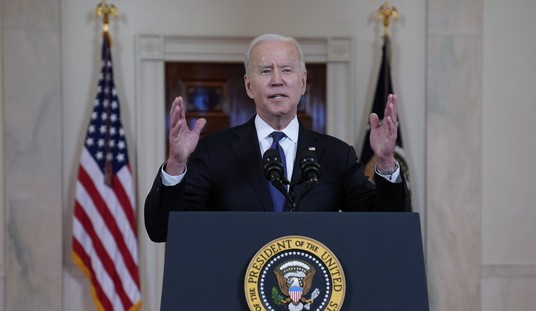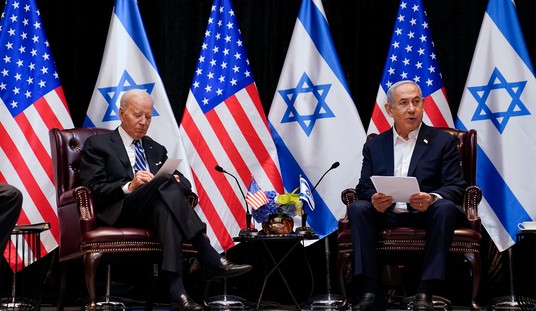The loss of a friend comes hard to all of us, and Barry Rubin was a friend, whom I always knew was there to discuss the issues that were of mutual concern to us. PJM readers know him well as our Middle East editor, a man who traveled the world and wrote candidly and frankly about the hard truths others always seemed to avoid.
His importance to those who followed the Middle East was made clear today in a statement issued by Dr. Robert Satloff, executive director of the Washington Institute for Near East Policy. Barry, Satloff stated, “was a brilliant scholar who was passionately committed to the pursuit of truth. He brought this determination to his fight against cancer. His death is a loss to the broader community of Middle East scholars.”
The Institute website provides a list with links to many of the articles Barry wrote for them and other outlets.
I suspect I knew Barry the longest of anyone at PJ Media. A decade older than him, I first met him when he and I were both men of the Left. He had just graduated college. Few know that back then Barry was hard left — as left as they come. At the time, he was foreign editor of a now defunct weekly newspaper, The Guardian, which had transformed from a vehicle of the pro-Communist Left to a newspaper of the most radical elements of the New Left, and of the pro-Maoist and most Stalinist elements that came from the ranks of the old Communist Party, U.S.A. Barry had become its foreign correspondent.
I suspect that experience is what gave him the personal insight for his new book — Silent Revolution, about the American Left’s rise to power — that will be posthumously published in May. Readers will find out that Barry’s expertise went far beyond that of understanding the Middle East. I know from the many discussions I had with him over the years about the Left in America that he had a lot to say especially on this topic.
When he was working for The Guardian, Barry — like the rest of the New Left — was enthusiastic about Cuba. So as I was sitting in the waiting room of Cubana Airlines at their Mexico City terminal in the summer of 1975, waiting to board the flight to Cuba, coming out of the plane was none other than Barry! “You’ll love Cuba!”, he shouted as he ran over to me. “You’ll see how Castro is building a new socialist country right in our own backyard.” He sat me down with tips galore about what to see and whom to talk to.
Years later, both of us would laugh about how as young men we had been taken in, and how the full realization of what a prison Cuba was for its people under the rule of Fidel Castro and his henchmen had helped move us far, far away from that Left we once were part of.
That experience also led Barry to report on the wars in Central America during the Reagan years. With my friend Robert S. Leiken, Barry co-edited an important volume, The Central American Crisis Reader. The book collected and presented the most important articles helping to explain what, at the time, seemed like the possible triumph of communist revolutions throughout the region. It also offered policy alternatives for how the United States should deal with the region. The book still stands as an important document for those wishing to comprehend how important Central America was in that period.
I saw Barry most often during his long stays in Washington, D.C., where he kept his mother’s old home and stayed when he was here. I would meet him often at the P.F. Chang’s in Rockville, Maryland, where we would have a relaxed meal of Chinese food and talk. When he was writing his biography of Yasser Arafat, Barry brought with him copies of documents and material he had uncovered that he would use in the book. Spreading them out on the restaurant table, he had me read the most revealing ones. I recall it was a long time before we ordered any food.
We shared a love of bluegrass music. My wife and I joined Barry, his wife Judith, and their children at the outdoors Strathmore concert series to hear the well-known local D.C. bluegrass masters Seldom Scene. Barry had first introduced me to his wife Judith Colp Rubin after they got married, when we both still lived in New York City.
And of course, Barry was an avid Civil War buff. As readers know, he regularly donned his uniform and participated, as he did last summer with re-enacters of the battle at Gettysburg during the camp set-up for the 150th anniversary event. Although he had recently gotten through his first bout with cancer, he went and took part in the blazing heat, wearing the heavy garments. To Barry, always one part American and one part Israeli, recognizing the importance of the Civil War and paying homage to those who fought and died in it was a great part of understanding the country of his birth.
I cannot believe Barry is no longer with us. Just two weeks ago I received a few e-mails from him, commenting on some of my PJM columns and offering his thoughts on the topics I was writing about. When he told me of his new book on the Left, I promised him to review it, a promise I will keep.
Barry Rubin is gone, but his friends and readers all over the world will continue to read his books and articles, learning from them as they did weekly from his reports for the institute he built in Israel, and from his columns in PJ Media. His loss is a great one, and there are few who can fill his shoes. R.I.P.








Join the conversation as a VIP Member